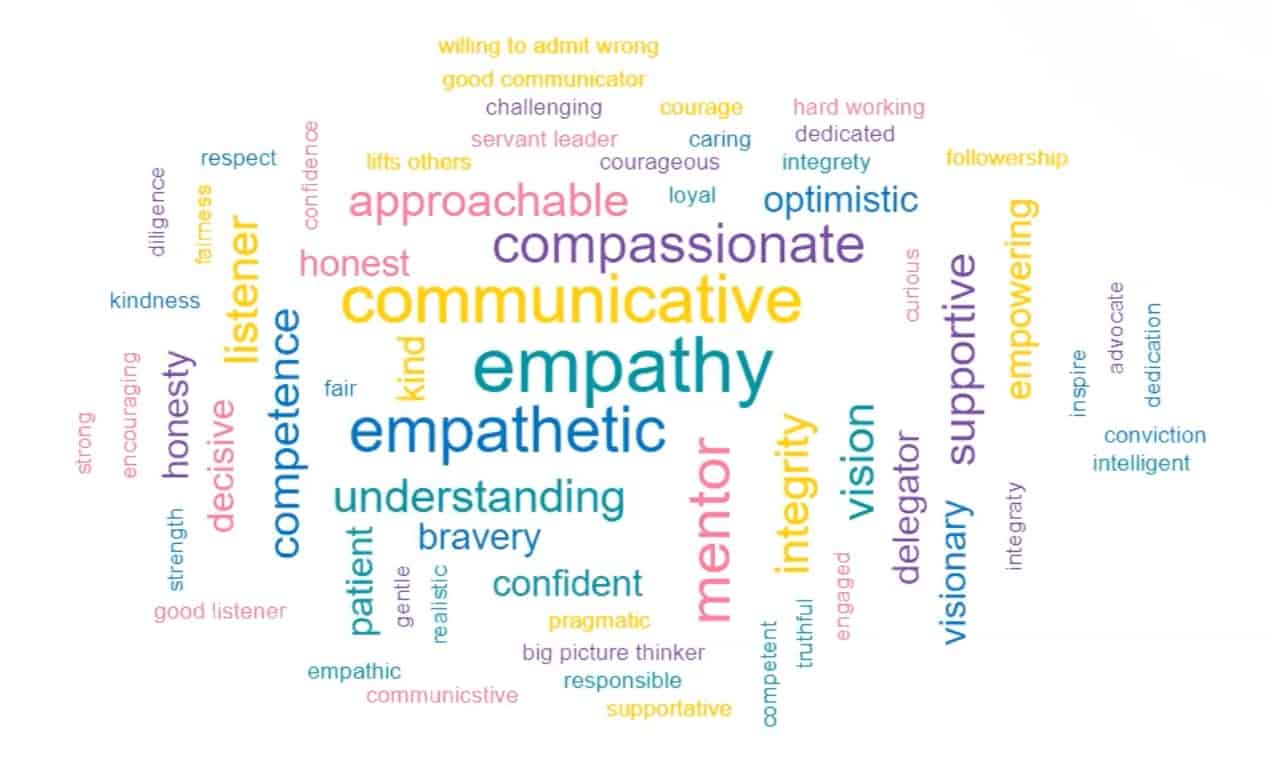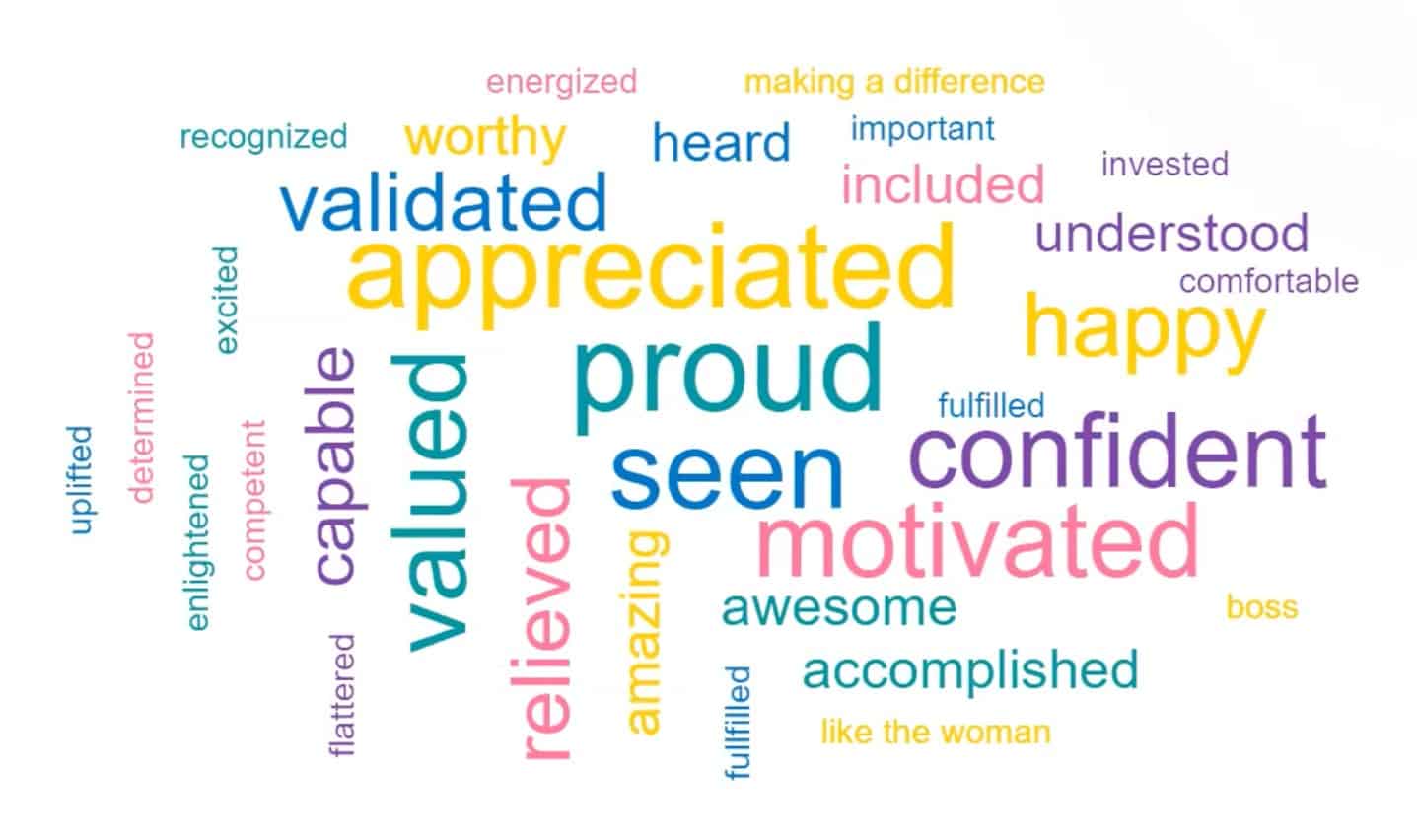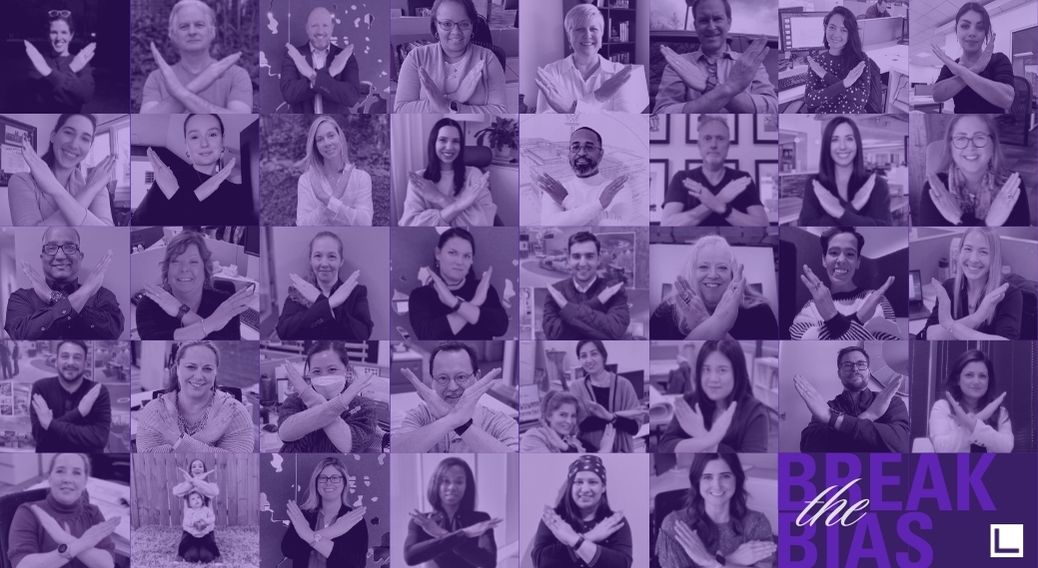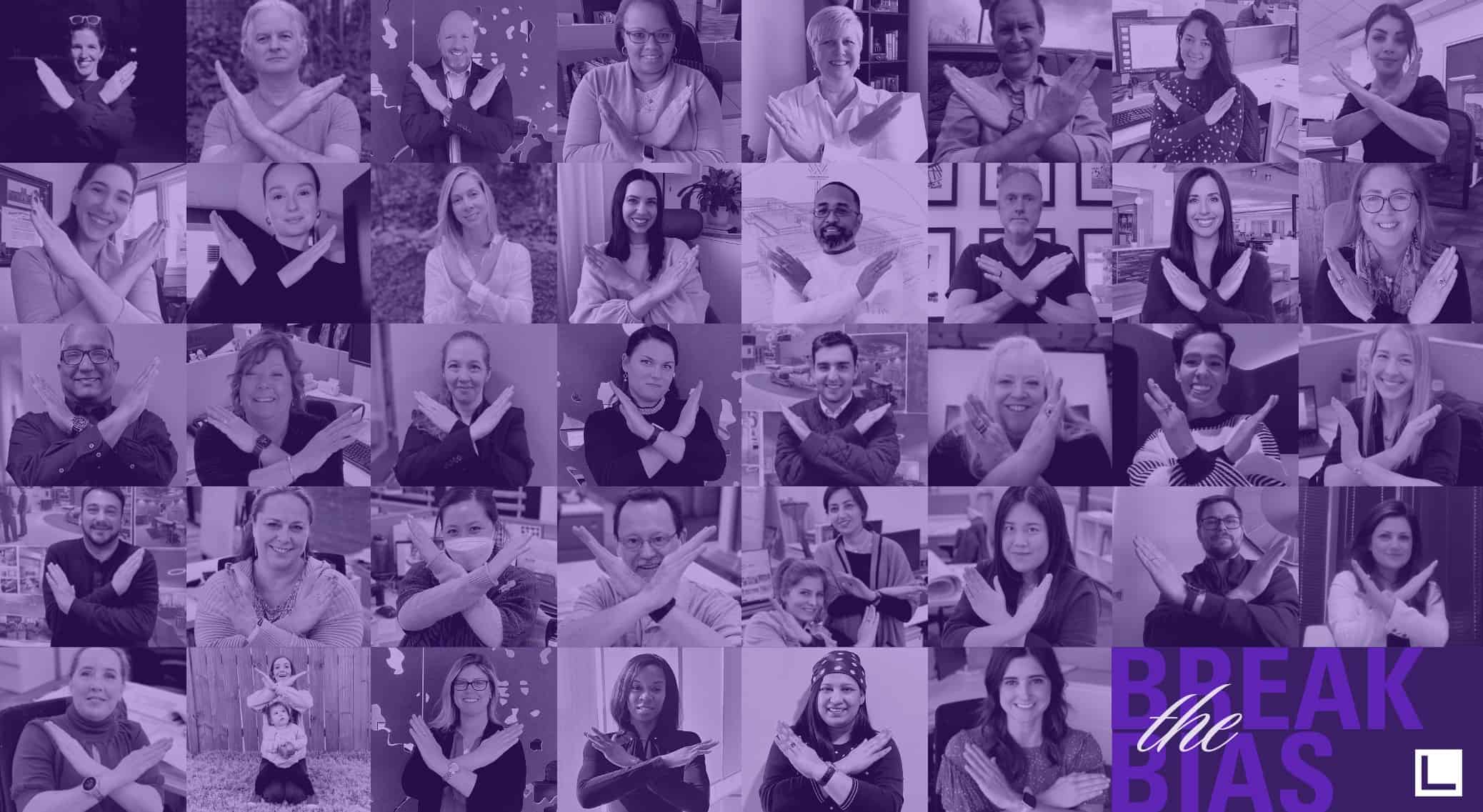In honor of International Women’s Day and Women’s Month, our women-centered employee resource group, She Belongs, hosted Stephanie Slocum, PE, founder of Engineers Rising, for her presentation on “Six Strategies for Empowering Women Leaders in the Hybrid Workforce.” The presentation was interactive, informative, and invaluable. We’ve compiled our major takeaways from the presentation so that others can use this knowledge to #BreakTheBias and forge a more gender equal AEC-industry and workplace.

Stephanie Slocum’s Six Strategies for Empowering Women Leaders in the Hybrid Workforce:
1. Rethink the Leadership Model
- There are traits that traditionally fall under “masculine” or “feminine”, and you’re often viewed as too much or not enough if you don’t match those styles. You are enough!
- Women are rejecting leadership styles that don’t model the life they want; 27% of women said workplace flexibility is the single biggest challenge faced by emerging women leaders. *
- During her presentation, Stephanie conducted several polls. Below are what fellow Little employees believe are the top characteristics of a leader:

2. Amplify Women’s Voices
- STEM Professionals report they feel the need to constantly prove themselves at work – 79% women vs. 52% men*
- Imposter syndrome, defined as doubting your abilities and feeling like a fraud, is very prevalent; 79% in women, 65% in men*
- Women’s Report:
- 52% of women have had their judgment questioned in their area of expertise*
- 64% of women have been interrupted or talked over at work*, men are almost 3x more likely to interrupt women than other men in meetings.
- 27% have been mistaken for someone at a much lower level*
- 45% have had others take or get credit for their ideas*
- Some ways to amplify women’s voices are to share successes with your team, post on behalf of someone for their accomplishments, advocate for their competency and experience, and show gratitude.
- Below are how Little employees feel when they’re recognized for their efforts:

3. Individual Employee Experiences
- It’s important to determine an individual’s growth plan
- Approaching middle management and senior/executive level leadership is where “non-traditional leadership styles” get stuck, this is where business acumen is required and there is a large mentorship gap.
- For every 100 men that are promoted to manager, 72 women are promoted to manager
- Women are thought to be more effective than men in 84% of leadership competencies, with two exceptions: technical expertise and strategy
4. Humanize Life Outside Work
- Pandemic has showed us that work and life aren’t separate.
- People of all genders are realizing that at work we must provide support for the whole person not just the person who gets a lot done.
5. Unlock the Promotion Mystery
- Those who get promoted are often individuals who look, think, and act like those giving the promotion; a common unconscious bias, which is why guidelines for promotions are extremely important.
- Promotion criteria isn’t clear, and criteria often changes. In Stephanie’s personal experience, she watched people who did less get promoted, so she left and started her own firm.
- If there is no promotion or hiring criteria, then individuals in charge of making these decisions are much more likely to choose the candidate who looks, thinks, and acts like them – which is simply human psychology.
- To take these biases out, companies need to define the criteria and make them transparent, so individuals know what to do to get ahead.
6. Enable Courageous Conversations
- In Google’s research of high performing teams, they found the team who outperformed all others had created a culture of psychological safety – which means, individuals feel comfortable to bring their ideas and who they truly are to work.
- Psychological Safety leads to lower turnover, more innovative ideas, and higher performing firms.
*Numbers were populated from a study Stephanie Slocum did of 100 STEM Professional men and women.
Allyship is the key to allowing women, and all individuals, to feel safe and included in the workplace, while gaining the confidence and support to move forward, but being an ally is a journey. Where are you in this continuum?



